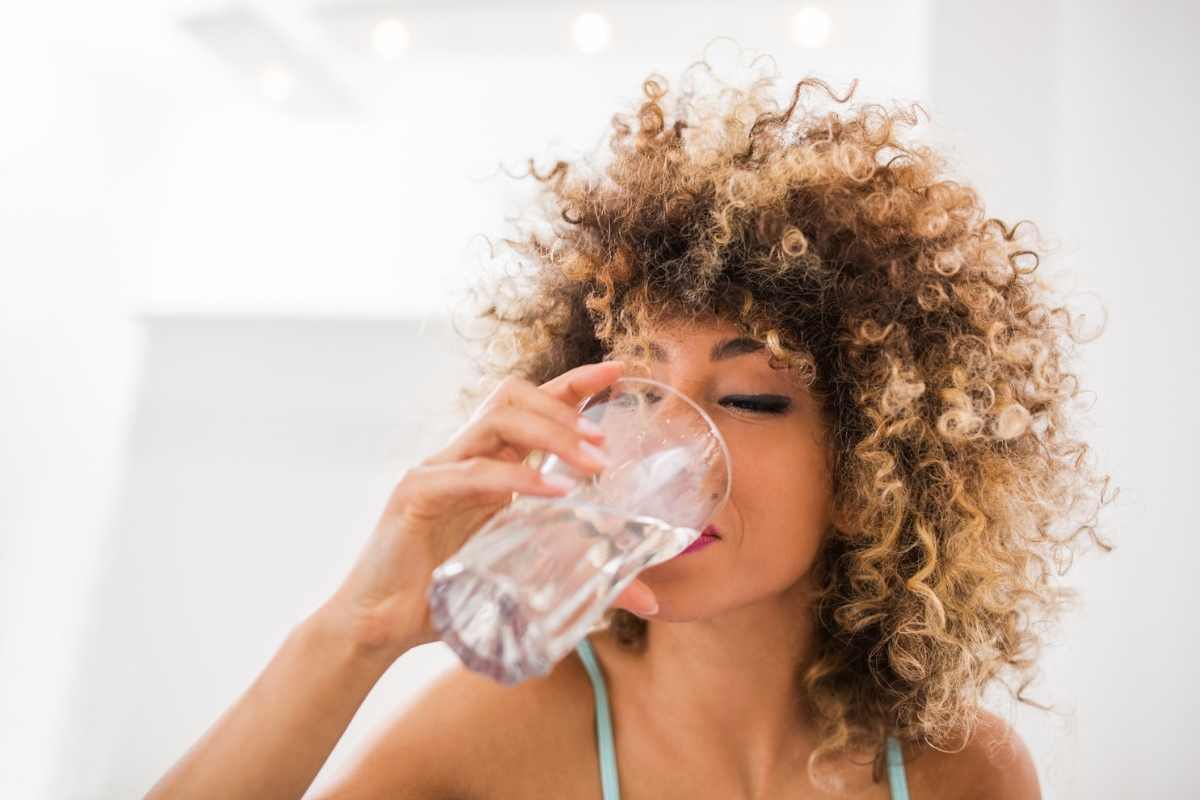
Staying hydrated is essential for keeping your body feeling and functioning at its best. We explore why – and easy ways to drink more water.
Water makes up 50-80% of the human body – so it’s not surprising that staying well hydrated is important for your health and wellbeing.1
But why is it so essential, and how can you make sure you’re drinking enough water in your day?
In this article:
Why staying hydrated matters for your health
Quite simply, your body needs enough water to function properly, both physically and mentally.1
Not having enough water (being dehydrated) can impact your physical and mental performance and lead to issues like fatigue, lethargy and headaches.2
Here are a few of the things staying hydrated does for your body:1
- Helps you move better by lubricating your joints.
- Aids digestion, preventing constipation and helping flush out waste products from the body
- Supports a healthy diet by helping you absorb nutrients.
- Provides moisture for your skin, mouth, nose and eyes.
- Regulates body temperature through sweating.
- Supports healthy cells and helps transport oxygen throughout the body.
- Helps protect your teeth by making saliva, which helps wash food away from the teeth. The fluoride in Australian tap water also helps protect against dental decay.
- Supports a healthy brain by helping to produce hormones and neurotransmitters.
So how much water do you need to drink?
Throughout the day you lose water from breathing, sweating and going to the toilet, so drinking plenty of water is important for maintaining good health.1
While approximately one fifth of the water you need comes from food, the rest comes from drinking fluids.1
All fluids can contribute to this, but water is the best choice. Not only is it the most effective at hydrating your body, it also contains no kilojoules.2
So how much is enough water? Well, the amount you should drink each day depends on several things, like your age, your metabolism, your diet, and any medical conditions you may have.1
As a general guide (where one cup is 250ml):1
- Adults need about 8-10 cups of fluid a day
- Pregnant or breastfeeding women need about 9 cups of fluid a day
- Babies need 0.7 to 0.8 litres of fluid a day (from breast milk or formula)
- Children need between 4 cups (for one-year-olds) and 6-8 cups (for teenagers) of fluid per day.
Signs and symptoms of dehydration
To prevent dehydration, it’s important to drink water before you feel thirsty – especially if you’re exercising or if it’s a hot day.1
Some signs that you may be dehydrated include:2
- Thirst
- Headaches
- Dark-coloured urine
- Feeling tired, lethargic or weak
- Mood changes, slow responses or feeling confused
- Dry mouth, lips or tongue
- Light-headedness or dizziness
One easy way to check how hydrated you are is to pay attention to the colour of your urine. If you’re well hydrated, your urine will likely be pale yellow, rather than darker.1
You can use this urine colour chart to find out more. (Please note some medications and vitamin supplements can also affect urine colour. Speak to your doctor if you are worried about the colour of your urine.)1
Easy ways to drink more water
If you find it challenging to get enough water throughout the day, you might want to try some of the following simple tips to increase your water intake:
- Always carry a water bottle. You might decide to invest in a reusable water bottle and keep it with you throughout the day for easy access.
- Start and end your day with a glass of water. This can be a nice part of your morning or evening routine.
- Choose water as your main beverage. This is also a good tip for cutting back on sugary beverages, contributing to a healthy diet.2
- Add flavour. If you tend to get bored of water, try making it a bit more exciting by adding a squeeze of lemon or lime, or get creative with fruits and herbs (like mixed berries, pineapple, or watermelon and mint).
- Keep water at your desk. It can be easy to forget to drink while you’re busy working.
- Drink water with every meal.
- Keep a bottle in the fridge. On warm days especially, it can be nice to have chilled water always waiting when you need some refreshment.
It may take some practice to get in the habit of drinking plenty of water, but with some simple tweaks you can make it a seamless part of your daily routine.
Diet and nutrition cover to nourish your health
HBF extras cover can pay benefits towards visits with a dietitian or nutritionist, helping you optimise your healthy eating.
Find out more
Disclaimer:
This article contains general information only and does not take into account the health, personal situation or needs of any person. In conjunction with your GP or treating health care professional, please consider whether the information is suitable for you and your personal circumstances.